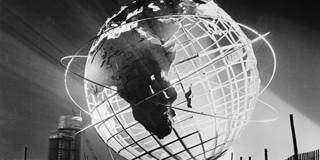Global markets are now more important than national markets for small and medium-size countries, and approaching that status for large economies. The emergence of such a truly global capitalism means that more and more economic activity will no longer be embedded in the politics or regulatory systems of various nation-states.
WASHINGTON, DC – From the end of World War II to the mid-2010s, economic globalization progressed relentlessly through expanded trade, proliferating capital flows, faster (and cheaper) communication, and, to a lesser extent, human migration. Yet, even as these linkages have deepened and multiplied, the global economy has remained fundamentally a collection of national economies, each embedded in national politics. This is now changing.

WASHINGTON, DC – From the end of World War II to the mid-2010s, economic globalization progressed relentlessly through expanded trade, proliferating capital flows, faster (and cheaper) communication, and, to a lesser extent, human migration. Yet, even as these linkages have deepened and multiplied, the global economy has remained fundamentally a collection of national economies, each embedded in national politics. This is now changing.